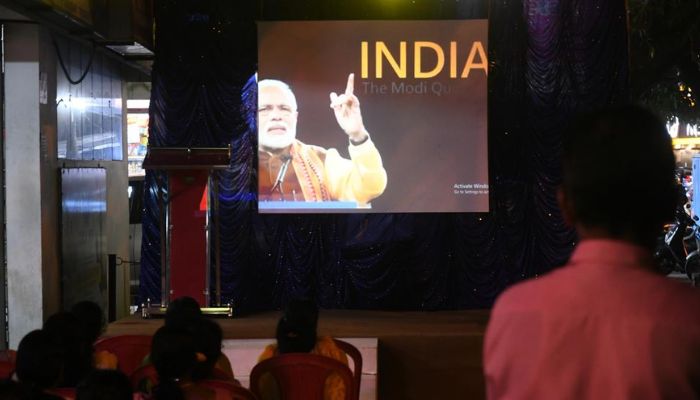
- BBC documentary investigated Modi’s link to Gujarat riots in 2002.
- Senior lawyer argues BBC deliberately maligning India’s image.
- Plea to ban BBC over documentary is misconceived: Supreme Court.
The Supreme Court of India has rejected a request seeking a ban on BBC in the country over its documentary about Prime Minister Narendra Modi, reported local Indian media.
The court, while rejecting the petition filed by Hindu Sena chief Vishnu Gupta who sought a ban on BBC’s operations in India, said the request was “misconceived”.
“How can a documentary affect the country,” Indian media quoted the Supreme Court as saying.
The documentary “India: The Modi Question” looks at the tensions between Modi and the country’s Muslim minority, “investigating claims about his role in the 2002 riots that left over a thousand dead.”
When the film was released, those with knowledge of the situation reported that the I&B Ministry used emergency powers granted under the Information Technology Rules, 2021, to compel the removal of the links, and both YouTube and Twitter agreed to comply.
A top Indian university also banned the screening of the documentary, after students in New Delhi had planned to watch it, defying efforts by Indian authorities to restrict its showing. But a memo from the university’s registrar ordered students to cancel the event and warned it would take “strict disciplinary action” if its edict was disobeyed.
However, some defiant Indian students said they would hold more screenings.
Senior lawyer Pinki Anand, who was representing the petitioner, argued that the BBC was “deliberately maligning India’s image” and also asked for an investigation by the National Investigation Agency (NIA) into the “conspiracy” behind the documentary, NDTV reported.
“This plea is misconceived, how can the Supreme Court pass such orders,” the judges said.

